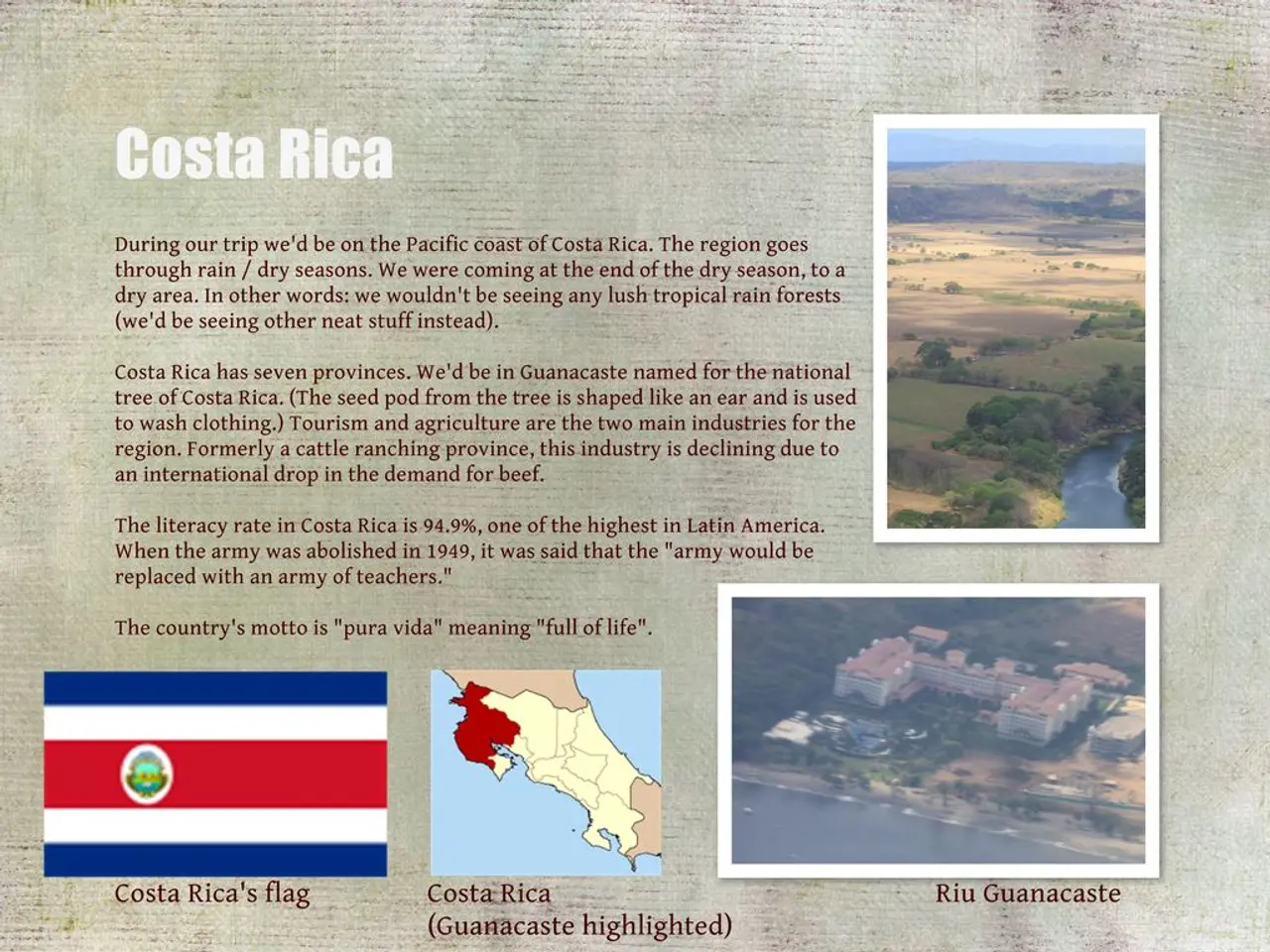Territories, communities, and villages progressing towards the lifestyle of Vivir Bien, mapped by expansive journeys ahead
In the heart of El Alto, a city in the department of La Paz, Bolivia, lies Wayna Tambo - Diversity Network. Established in 1995 as a community and neighborhood cultural center, this organisation has grown to own and make decisions about Wayna Tambo radio station, Yembatirenda, and Sipas Tambo.
The Indigenous community in Totoral Chico continues to fight for freedom and a life harmonious with their Mother Earth. This struggle is echoed through the media outlets owned by Wayna Tambo - Diversity Network. Mary Luz, from the Totoral Chico community, expresses hope for a peaceful and dignified life for Indigenous-originary peoples and nations.
The Diversity Network collaborates with organisations like Cultural Survival to discuss topics such as transition minerals and energy transition in Bolivia. However, Doña Marina expressed concern about the difficulty of translating concepts like energy transition and transition minerals for Indigenous communities.
The Indigenous Community Media Fund, an international initiative, has been instrumental in supporting projects that empower Indigenous voices. In 2024, it provided 57 grants totalling $480,000 to Indigenous community media in 25 countries, including Bolivia.
One such Bolivian initiative is Iris Ruiz’s fellowship project, which trained Indigenous youth journalists in environmental communication and digital media skills. This project mobilised 30 youth fellows from four regions of Bolivia, fostering a lasting community platform for Indigenous storytelling and advocacy on environmental crises impacting their territories.
Another initiative, the "Nación" program, launched and sustained by @maricas_bolivia, received funding from the Indigenous Community Media Fund. While details about the program's specific content and impact are limited, it is presumed to be related to Indigenous media production and community empowerment.
These projects contribute to amplifying Indigenous voices in Bolivia by enabling Indigenous peoples to tell their own stories, preserve their cultures, and advocate for their rights and environmental protection in their own languages and through culturally relevant media. The initiatives under the fund also strengthen journalistic capacity among Indigenous youth, promote truthful and inclusive storytelling, and help build community-based media structures that continue beyond the project timelines.
The Indigenous Community Media Fund projects in Bolivia emphasise Indigenous-led media empowerment, environmental advocacy, and cultural resilience, with tangible community engagement and sustainable media infrastructures forming key impacts. However, it's worth noting that the search results do not provide extensive quantitative impact data.
The fight against illegal mining, a destructive force in many Indigenous communities, is another area of focus for Wayna Tambo - Diversity Network. Unfortunately, there is no adequate response from the state, leaving communities vulnerable and their lands at risk.
Bolivia is part of the Lithium Triangle, a region involving discussions about mining activity, exploitation of raw materials, and their impacts on communities and the environment. The Diversity Network's work focuses on decolonising, depatriarchalising, demercantilising, and deanthropocentric perspectives, aiming to create a harmonious coexistence between humanity and nature.
The Indigenous Community Media Fund continues to play a crucial role in supporting Indigenous media initiatives worldwide, including Bolivia, where it is helping to amplify Indigenous voices and promote environmental and social justice.
- Wayna Tambo - Diversity Network, located in El Alto, Bolivia, strives to harmonize Indigenous life with Mother Earth, a struggle reflected in their media outlets.
- Mary Luz from the Totoral Chico community hopes for a life of peace and dignity for Indigenous peoples and nations.
- Collaborative discussions with organizations like Cultural Survival involve transition minerals and energy transition in Bolivia.
- Doña Marina voices concern about explaining concepts like energy transition and transition minerals to Indigenous communities.
- The Indigenous Community Media Fund supports projects that empower Indigenous voices, providing over $480,000 in 2024 to 30 youth fellows in Bolivia for environmental communication and digital media skills.
- The "Nación" program, backed by @maricas_bolivia, received funding from the Indigenous Community Media Fund, with details about its content and impact yet to be determined.
- Indigenous-led media projects in Bolivia promote Indigenous storytelling, cultural preservation, and advocacy for rights and environmental protection.
- These initiatives also strengthen journalistic capacity among Indigenous youth, champion truthful and inclusive storytelling, and establish enduring community-based media structures.
- Despite the lack of extensive quantitative impact data, projects under the Indigenous Community Media Fund in Bolivia focus on media empowerment, environmental advocacy, and cultural resilience.
- The fight against illegal mining, a threat to many Indigenous communities, is addressed by Wayna Tambo - Diversity Network, with inadequate state response leading to vulnerability and land risk.
- Bolivia, being part of the Lithium Triangle, faces discussions about mining activity, raw materials exploitation, and their effects on communities and the environment.
- The Diversity Network's work seeks to create a harmonious coexistence between humanity and nature through decolonising, depatriarchalising, demercantilising, and deanthropocentric perspectives.
- The Indigenous Community Media Fund continues to be essential in amplifying Indigenous voices and promoting environmental and social justice not only in Bolivia but worldwide.






